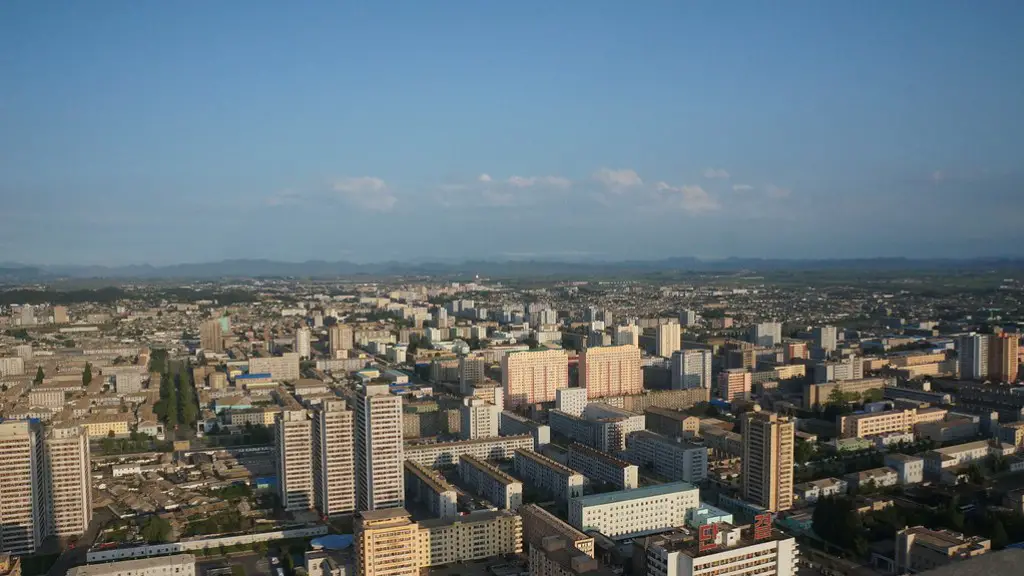Background Information
Since the 1950’s, North Korea has been actively participating in nuclear research and development, with their first test of a nuclear weapon being in October of 2006. After the successful test, North Korea declared that it had become a nuclear state and could produce weapons of mass destruction at will. On January 6th of 2016, North Korea then declared that it had successfully tested a hydrogen bomb, a massive step up from their prior nuclear weapon testing. This news shook the world and caused a large international response as North Korea proved it had the capability to develop these kinds of devastating weapons.
Capabilities
A hydrogen bomb, also known as a thermonuclear bomb, is far more powerful than a typical nuclear weapon and has the potential to cause significant destruction. While the power of the bomb was never officially released by North Korea, the size of the earthquake it caused was estimated to be around 5.1 on the Richter scale. This magnitude is much higher than their prior tests, showing that they have taken a big step up in their capability in producing these dangerous weapons.
Reactions
The reaction across the world was mixed. While some governments viewed the test as an act of aggression and applauded the UN’s sanctions against North Korea, other governments took a more understanding attitude towards North Korea’s testing. In particular, China appealed to the United States and other nations to open a dialogue with North Korea and work towards a peaceful resolution.
International Sanctions
As a result of the test, the United Nations Security Council imposed a new set of sanctions against North Korea, including a number of bans on trade and military exchanges. These sanctions are intended to limit North Korea’s ability to acquire the materials and resources necessary for the production of nuclear weapons and other weapons of mass destruction.
Analysis and Impact
North Korea’s test of the hydrogen bomb had a serious impact on the international stage. It sent a powerful message to the world that North Korea is not afraid to stand up to international pressure and is determined to continue pursuing its ambitions to become a world power. However, the test also had a serious effect on global security. Scientists at the US Geological Survey calculated that the radiation released from the explosion could have health implications in nearby countries and beyond. Furthermore, it has erected a significant barrier to further diplomatic talks with North Korea.
Political Implications
North Korea’s nuclear ambitions have been a source of political tension between the country and its neighbors for many years. The international reaction to the hydrogen bomb test is indicative of the complex politics of the Korean Peninsula and shows no sign of improving any time soon. North Korea has expressed a desire for talks with its neighbors, but until the international community is willing to come to the table, it is unlikely that any real progress will be made.
Possible Nuclear War
Despite North Korea’s stated commitment to its nuclear ambitions, the possibility of nuclear conflict between North Korea and its neighbors is still very much a reality. North Korea has stated that it is willing to use nuclear weapons if it feels threatened, and this has raised concerns among other countries in the region. Furthermore, the United States has made it clear that it will use force if necessary to prevent the spread of nuclear weapons in the region, raising the stakes and creating a dangerous situation.
Public Opinion
Public opinion in North Korea is largely in favor of the hydrogen bomb test, as it has been portrayed as an expression of national pride and a display of strength. However, public opinion in other countries around the globe is mixed. While many people understand the importance of nuclear power and the potential it has to provide energy and security, others are fearful of the potential for nuclear conflict that North Korea’s actions have created.
Conclusion
North Korea’s test of a hydrogen bomb in 2016 was a major event that had serious implications for international security and politics. It showed the world that North Korea has the capability to develop and deploy weapons of mass destruction, and has raised the potential for nuclear conflict in the region. It also necessitated a strong international response, with the United Nations imposing sanctions and international dialogue being opened up between North Korea and its neighbors. As North Korea continues to pursue its nuclear ambitions, the international community must continue to work together to try to reach a lasting peace in the region.


